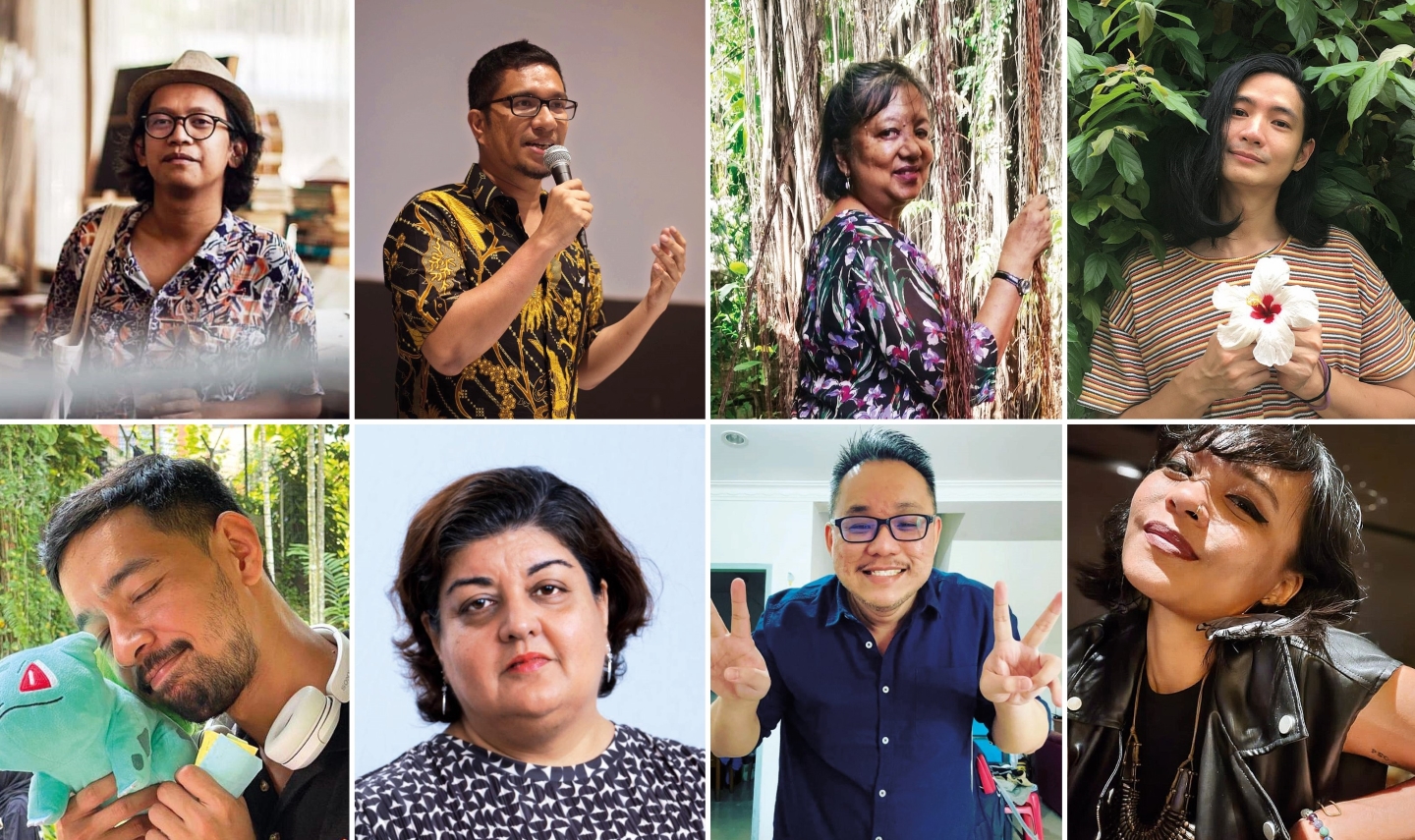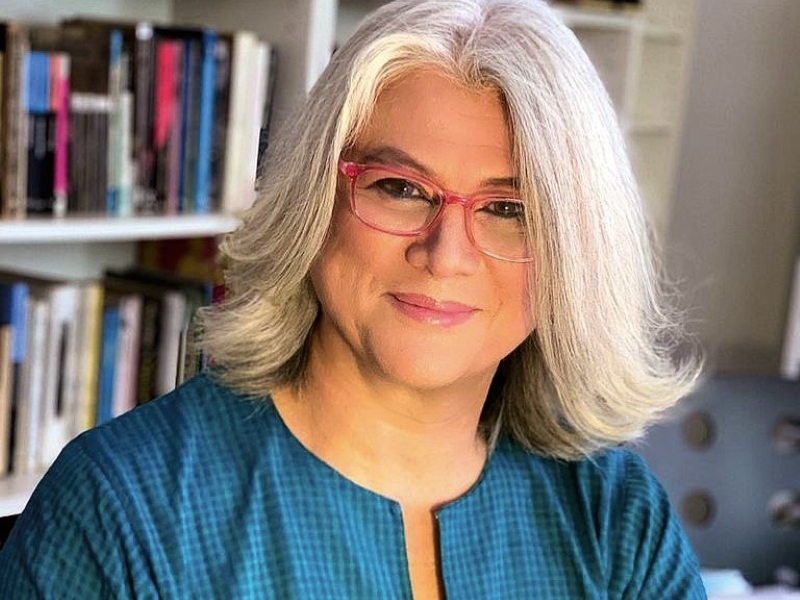
PEN Malaysia’s committee members, clockwise from top left: Fahmi Mustaff, Amir Muhammad, Lalita Sinha, Zedeck Siew, Nadira Ilana, Lee Xuan Chun, Sheena Gurbakhash and Deric Ee (All photos: PEN Malaysia)
Committee members of PEN Malaysia refer to “pre-ROS and now” because although it did not take long to register with the Registrar of Societies, largely thanks to writer Uthaya Sankar, the idea of an association of multilingual writers aligned with PEN International dates back to 2005, when poet and educator Bernice Chauly met British novelist and journalist Hari Kunzru, who was visiting the country.
This year, Zed Adam Idris, an author of short stories working on his debut novel, suggested the name Persatuan Penulis Berbilang Bahasa (in short, PEN M’sia). Soon after that was done in June, president Dr Ann Lee “cajoled” a group of writers from different genres, languages and states to join, and the society had its first annual general meeting and voted in a new committee.
“It also took longer to register, perhaps because there are always many ideas, but also some whose time has come,” says Lee, who spells out PEN’s three aims: protect the welfare of members, encourage literary activities in the country, and contribute to the development of Malaysian literature.
“Nobody wanted to stand for the top post!” she adds. “As I see it, I’m warming the seat for a younger generation of writers to come through. Like Deric Ee (vice-president), Nadira Ilana (chair, women writers) and Lee Xuan Chun (treasurer).”
Lee has “three wishes” for her two-year term: sort out the basics, from bank account to membership drive and activities that match PEN’s aims; enjoy the country’s multiple languages and fluencies; and research and share about freedom of expression and censorship.
Elaborating on the last, she says: “We have censorship laws about censorship laws, if you will. I must network with like-minded writers’ associations that have been in this terrain for much longer. Whether it’s PENA [Persatuan Penulis Nasional Malaysia] or Amnesty International, PEN Malaysia joins the chorus that already exists to promote literature among the arts and to defend, if not also define, freedom of expression in the country.
dr_ann_lee.jpg

“Given the Federal Constitution, syariah laws, adat, so much power in the hands of federal ministers as well as social media robustness and ruthlessness, we need to explore more about freedom of expression in terms and paradigms not only derived from the Universal Declaration of Human Rights (1948).
“Some like to say all freedom of expression is kebudayaan barat (Western). But that ignores the wide range of scholarship on [the issue], such as by Prof Mohammad Hashim Kamali, a world scholar on freedom of expression in Islam. And he’s right here in Malaysia.”
The society is collaborating with researchers who are monitoring and researching censorship, notably the Southeast Asian Arts Censorship Database, headed by Kathy Rowland of artsequator.com, and also ReformARTsi, an independent coalition of performing arts which has a project with LexisNexis about licensing procedures, legislation and content.
PEN Malaysia is affiliated with PEN International, which was founded in London in 1921 to celebrate literature and protect freedom of expression. The latter operates in more than 100 countries today, supporting “unhampered transmission of thought within each nation and between all nations”.
“Being aligned with PEN International — as with any organisation that meets our aims — we offer members the benefits of a 100-year-old writers group with about 150 autonomous centres around the world,” Lee says. “When you join an online workshop about, say playwriting, it’s with playwrights from Asia, Africa, the Americas and Europe. You can also have access to established writers and knowledge about the genres of writing and its ecosystem, including learning how to face life with AI.”
PEN Malaysia is also interested in finding or making space for Malaysian languages that are less well known, if not also under threat.
According to linguist Prof Emerita Asmah Omar, an estimated 140 languages are spoken daily in the country, and at least 80 as first languages. Many Malaysians can speak up to four, yet there has been very little intra-translation.
“We call ourselves storytellers, but we have very little idea about all our stories being told. I would hope to see much more intra-translation coming out. Let it start with smaller audiences; we will surely see it grow over time,” Lee says.
Lalita Sinha, the society’s head of translation, is now translating Bengali poems by Rabindranath Tagore into Bahasa Malaysia, with National Laureate (1991) Muhammad Haji Salleh as project adviser. Committee member Amir Muhammad is looking to publish an anthology of short stories from previously unpublished writers in various languages. He has also initiated Buku Lingo, which is translating a Tamil novel by M Navin into BM. It will be launched at the George Town Literary Festival (Nov 23 to 26).
For details on membership and to connect with PEN Malaysia, see here.
This article first appeared on Oct 30, 2023 in The Edge Malaysia.


